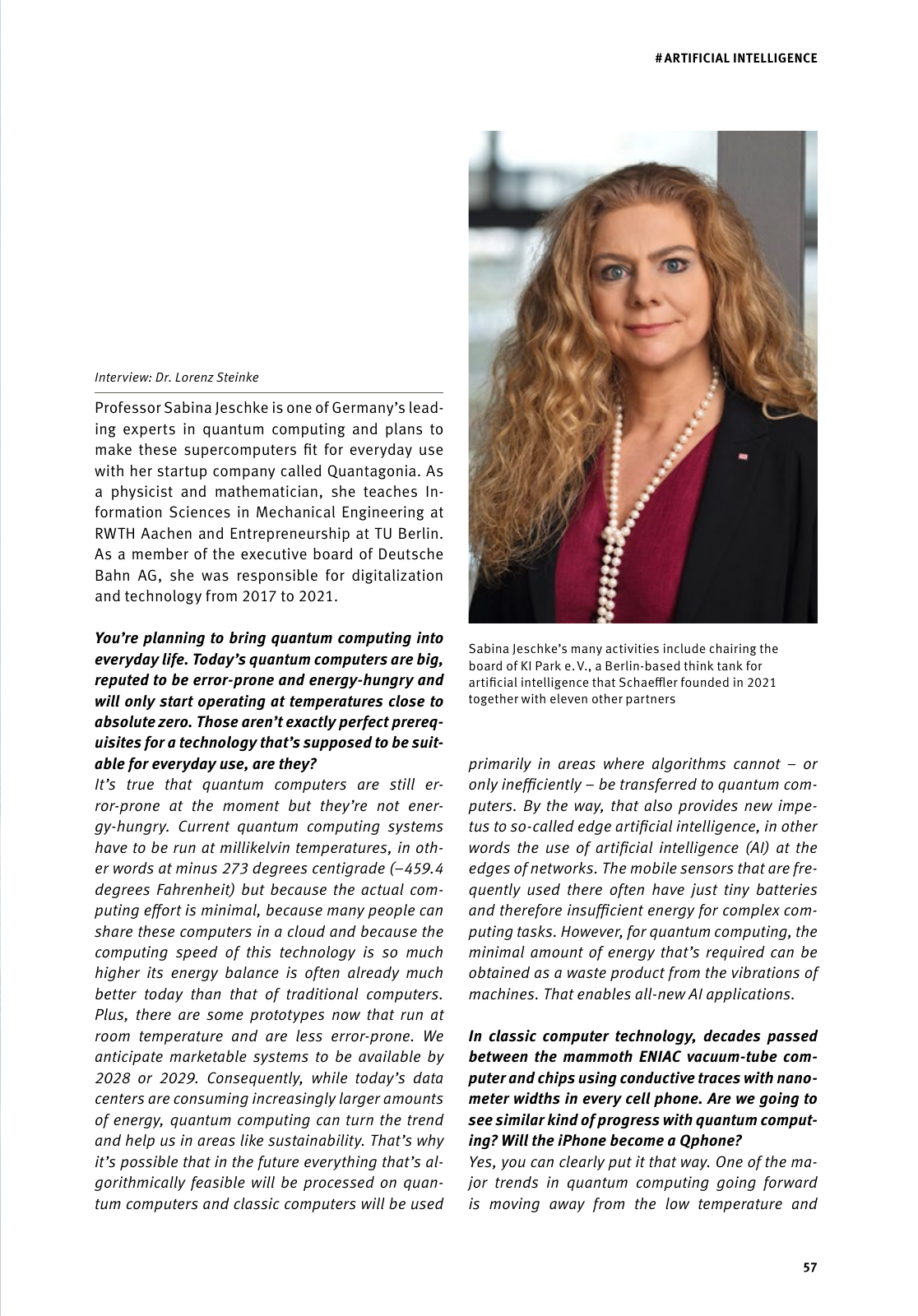Professor Sabina Jeschke is one of Germany s lead ing experts in quantum computing and plans to make these supercomputers fit for everyday use with her startup company called Quantagonia As a physicist and mathematician she teaches In formation Sciences in Mechanical Engineering at RWTH Aachen and Entrepreneurship at TU Berlin As a member of the executive board of Deutsche Bahn AG she was responsible for digitalization and technology from 2017 to 2021 You re planning to bring quantum computing into everyday life Today s quantum computers are big reputed to be error prone and energy hungry and will only start operating at temperatures close to absolute zero Those aren t exactly perfect prereq uisites for a technology that s supposed to be suit able for everyday use are they It s true that quantum computers are still er ror prone at the moment but they re not ener gy hungry Current quantum computing systems have to be run at millikelvin temperatures in oth er words at minus 273 degrees centigrade 459 4 degrees Fahrenheit but because the actual com puting effort is minimal because many people can share these computers in a cloud and because the computing speed of this technology is so much higher its energy balance is often already much better today than that of traditional computers Plus there are some prototypes now that run at room temperature and are less error prone We anticipate marketable systems to be available by 2028 or 2029 Consequently while today s data centers are consuming increasingly larger amounts of energy quantum computing can turn the trend and help us in areas like sustainability That s why it s possible that in the future everything that s al gorithmically feasible will be processed on quan tum computers and classic computers will be used primarily in areas where algorithms cannot or only inefficiently be transferred to quantum com puters By the way that also provides new impe tus to so called edge artificial intelligence in other words the use of artificial intelligence AI at the edges of networks The mobile sensors that are fre quently used there often have just tiny batteries and therefore insufficient energy for complex com puting tasks How ever for quantum computing the minimal amount of energy that s required can be obtained as a waste product from the vibrations of machines That enables all new AI applications In classic computer technology decades passed between the mammoth ENIAC vacuum tube com puter and chips using conductive traces with nano meter widths in every cell phone Are we going to see similar kind of progress with quantum comput ing Will the iPhone become a Qphone Yes you can clearly put it that way One of the ma jor trends in quantum computing going forward is moving away from the low temperature and Interview Dr Lorenz Steinke Sabina Jeschke s many activities include chairing the board of KI Park e V a Berlin based think tank for artificial intelligence that Schaeffler founded in 2021 together with eleven other partners 57 A RT I F I C I AL I NT ELLI G E N C E

Hinweis: Dies ist eine maschinenlesbare No-Flash Ansicht.
Klicken Sie hier um zur Online-Version zu gelangen.
Klicken Sie hier um zur Online-Version zu gelangen.